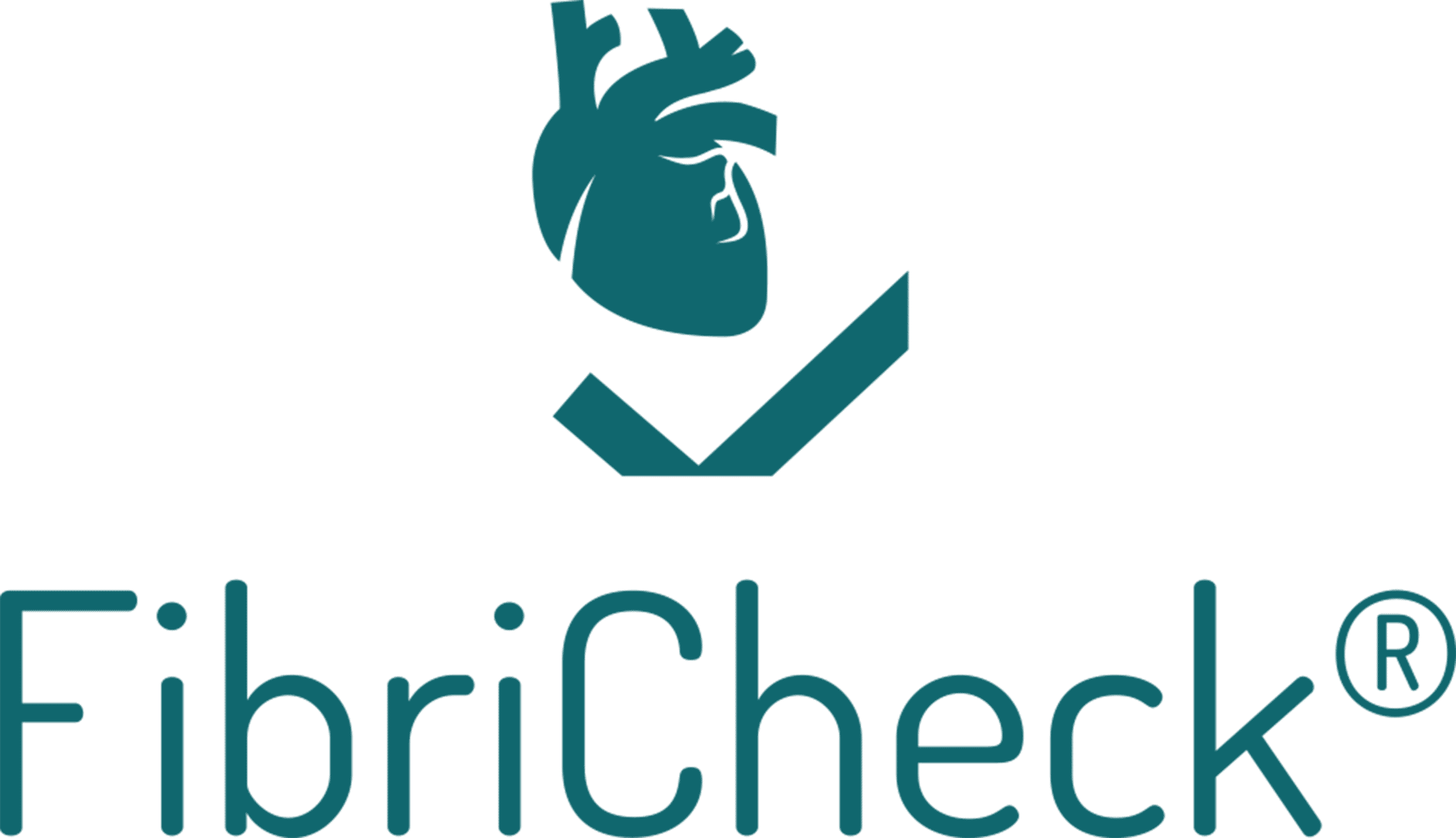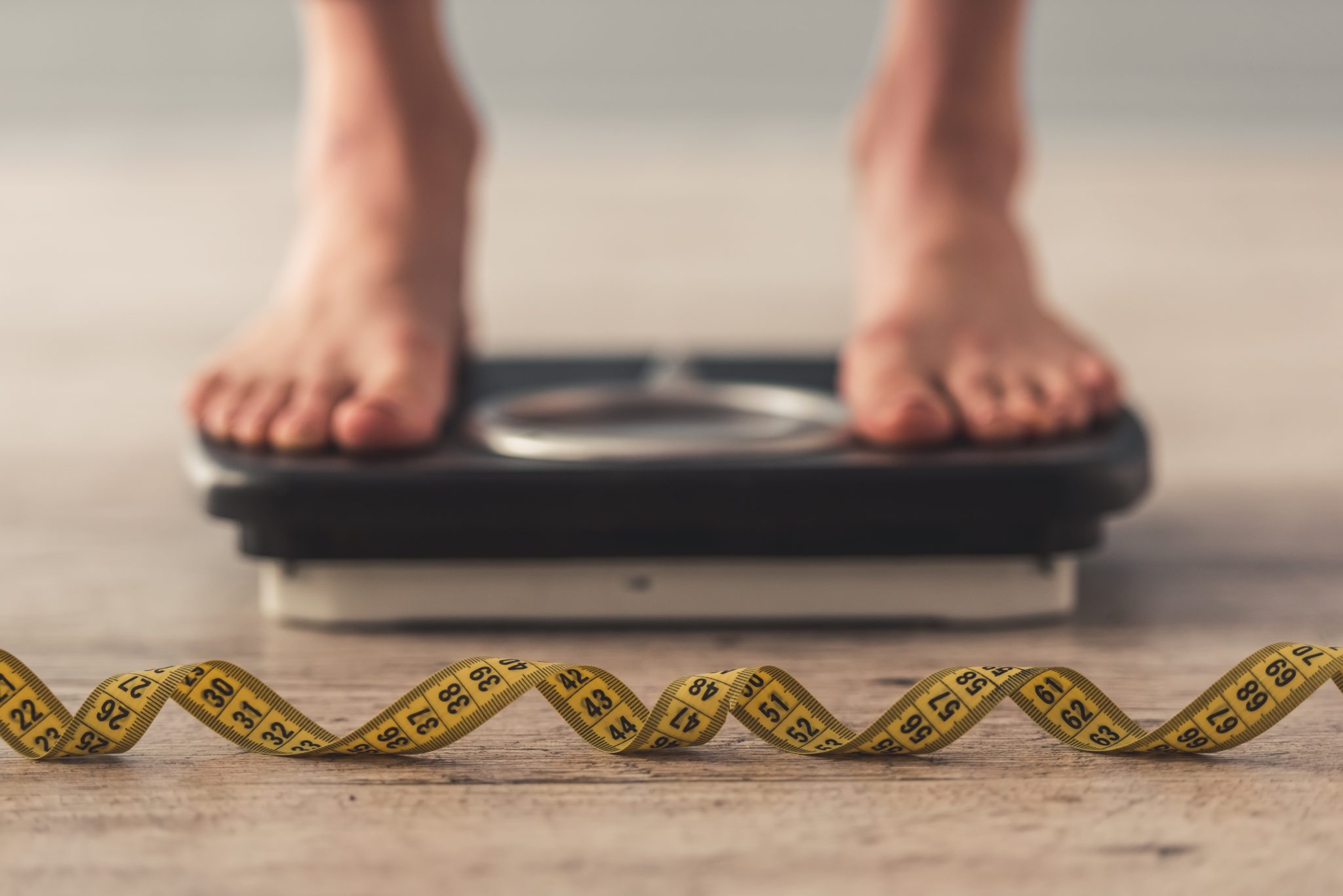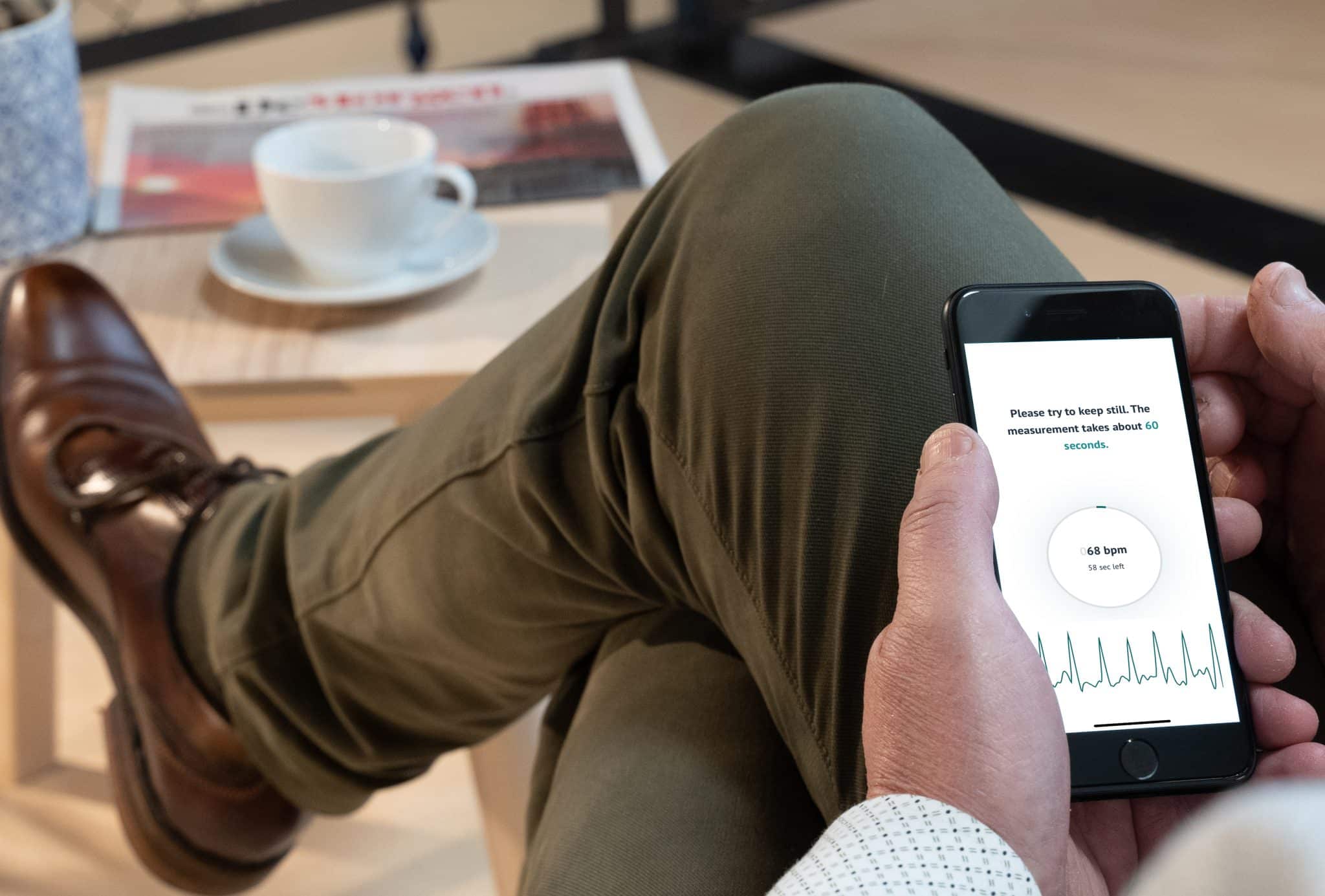There is a mounting body of scientific evidence: our lifestyle can have impact on our health. Our lifestyle is the cause of a wide number of cardiovascular diseases. But is it also correlated with atrial fibrillation (AF) or auricular fibrillation, the most common heart rhythm disorder? Can we prevent AF or keep it in check by adapting our lifestyle?
AF: keep an eye out for these symptoms
Atrial fibrillation or auricular fibrillation can be nasty. One in every four adults risks developing this heart rhythm disorder at some point, which greatly increases the risk of stroke. The problem is: in 40% of cases, AF goes completely unnoticed. In all other cases, symptoms do occur, with palpitations chief among them. But symptoms such as fatigue, shortness of breath, a general sense of unease and dizziness may set alarm bells ringing. To quickly obtain certainty as to whether or not these often vague symptoms are actually caused by atrial fibrillation or auricular fibrillation, it is a good idea to frequently check your heart rhythm using the medically certified FibriCheck app.

AF detected: now what?
Did our medical app detect atrial fibrillation or auricular fibrillation? Then we advise to make an appointment to see your GP or cardiologist as soon as possible. Depending on your specific situation, they will decide on the most appropriate treatment. Medication and/or surgery is meant to prevent strokes, keep your heart rhythm and the frequency of the rhythm disorders in check and tackle underlying medical issues and risk factors. So the safest way forward is to continue to closely monitor the condition of your heart both during and after your treatment by way of daily readings with the FibriCheck app. And whatever the medical approach decided on may be, combining this treatment with a healthy lifestyle appears to be vital.
Reduce (the risk of) AF by adopting a healthy lifestyle
The medical treatment of atrial fibrillation or auricular fibrillation is successful only if you also adjust your lifestyle.
Be aware of what you eat
Remember: the things you eat have an impact on your quality of life. So give ready meals and processed food a wide berth. They contain too much salt and are often lacking in vital nutrients. Do yourself a favour and prepare yourself a nice fresh meal instead. For years, nutrition experts have been arguing in favour of a Mediterranean diet. On your menu from now? At least 2 pieces of fruit and 300 grams of vegetables each day. Use lots of olive oil, eat whole grains, a handful of nuts and stick to lean meat and fish only. And leave the salt cellar in the cupboard. Everything tastes that much better with fresh herbs.
Use less caffeine
Caffeine keeps you awake and acts as a stimulant. There is nothing new there. However, research shows that caffeine also comes with the risk of pushing your natural heart rate into an abnormal rhythm. Does this mean you should strike your daily cup of coffee off the menu? Not necessarily. Just don’t go overboard on the amount of coffee you have. And bear in mind that tea, soft drinks, energy drinks and chocolate also contain caffeine.
Limit your alcohol intake
The odd glass of your favourite tipple won’t do much harm. But an increasing number of studies is showing that alcohol is a lot more unhealthy than it was believed to be. Heavy drinkers and binge drinkers effectively run an increased risk of heart rhythm disorders. Recent studies show that even moderate drinkers (21 drinks per week for men, 14 for women) are in the danger zone. So avoiding hangovers also means avoiding heart rhythm disorders.
Give up smoking
One resolution that tends to rank high among smokers at the start of a new year is to give up smoking. Not only is the addictive nicotine pure poison for your lungs, alongside their carcinogenic effect, cigarettes also have a stimulating effect on your heart rate, and consequently pose a heightened risk of abnormal heart rhythms. Is vaping a better alternative? The answer is no. The first studies into e-cigarettes showed they have the same stimulating effects on your heart.
Get more exercise
We all spend too much of our time sitting down for too long, whereas our bodies are made to move. Ideally the entire day, but no less than 30 minutes. Needless to add that exercise is a natural medicine for your body and mind: it protects you from obesity, diabetes, cancer, depression and … cardiovascular diseases. So get moving!
Allow yourself a break, reduce stress
Give yourself a break and do your heart a favour. Worrying over your atrial fibrillation or auricular fibrillation is normal and natural. But constantly agonising over it has the opposite effect. Persistent and/or high levels of stress act as a trigger for heart rhythm disorders. So try and take your mind off it and allow yourself to enjoy relaxing moments in your daily schedule.
Turn in on time
A lot of us are bad sleepers. And we do not nearly get enough sleep to boot. This chronic lack of sleep continues to be underrated, but in the meantime it does saddle us with a lot of harmful heart effects. Including atrial fibrillation or auricular fibrillation. So turn in on time and make sure you get a good night’s sleep.
An ounce of prevention is worth a pound of cure. A huge cliché, but – as with most clichés – no less true for it. Even if the FibriCheck app is currently not detecting any atrial fibrillation or auricular fibrillation, it is important to take the tips listed above to heart. A healthy lifestyle is the most efficient way to drive down the risk of AF. Incorporate these healthy habits into your daily routine. And enjoy life!
Timely detection and/or closely monitoring of atrial fibrillation?
FibriCheck is the first medically certified app that measures your heart rate and heart rhythm via your smartphone.
References:
- Lifestyle Changes to Manage AFib Better. Consulted on https://www.healthline.com/health/atrial-fibrillation/lifestyle-changes
- Adjusting to life with atrial fibrillation. Consulted on https://www.heartfoundation.org.nz/your-heart/hearthelp/atrial-fibrillation/living-with-af
- A Patient’s Guide to Living With Atrial Fibrillation. Consulted on https://www.ahajournals.org/doi/full/10.1161/circulationaha.108.780577
- Sodium In Your Diet. Consulted on https://www.fda.gov/food/nutrition-education-resources-materials/sodium-your-diet
- Experts rangschikken 40 diëten: het mediterrane wint, veel hypes bengelen onderaan. Consulted on https://www.demorgen.be/nieuws/experts-rangschikken-40-dieten-het-mediterrane-wint-veel-hypes-bengelen-onderaan~b68af032/
- E-sigaret nu ook voorzichtig in verband gebracht met hart- en vaatziekten. Consulted on https://scientias.nl/e-sigaret-nu-ook-voorzichtig-in-verband-gebracht-met-hart-en-vaatziekten/
Created on January 21st, 2022 at 02:49 pm
Last updated on June 27th, 2024 at 09:03 am



